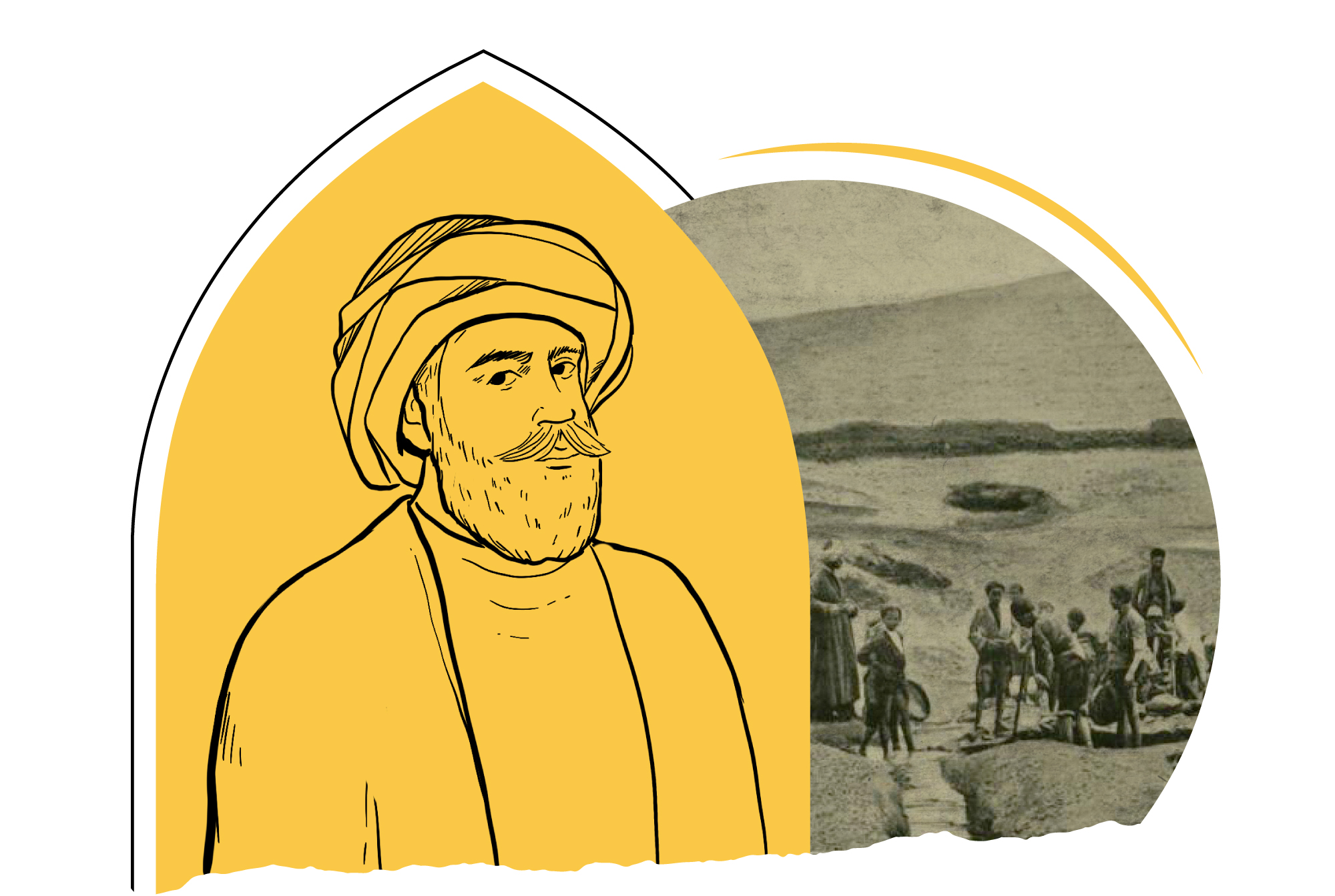
Persian Project
In the Abbasid Era
The Persians influenced the beginning of the Abbasid state and worked to strengthen their position, power and influence among the Abbasids, by persuading the caliphs that they were the most capable of leading the stage of establishment. They also sought to distort the Arab elements and cast doubt on ever Arab person; claiming that he is loyal to the Umayyads and their state that fell in the year (132 AH). From that door, specifically, the Persians had power, authority and domination.
It went even worse with the Persians’ desire to reap the fruits of their advocacy of the Abbasid call and to collect the spoils behind that. From this point, their incursion into the affairs of administration and their control over the financial affairs of the state increased till they became controller of the treasury of the state. It became clear to everyone that this control of the state’s economy had become a serious threat to the authority of the Abbasids themselves.
Perhaps the biography of Abu Muslim al-Khurasani is the best example of that in the early period of the history of the Abbasids, as he undertook a key role in the success of the Abbasid call through his family and clan from the people of Khorasan. He constituted one of the most important centers of power in the state and was keen, at the beginning of the era of the state, to impose his control over the management of Khorasan region’s affairs, due to the richness of that region and the seizure of its income. It was evident that Abu Muslim did not differentiate much between public money and his own private money and collected huge fortunes that were reflected in the manifestations of extravagance in his life, in addition to his gifts and grants to gain the loyalty of his supporters to protect himself in case of any political fluctuations in the state.
The Persian scheme began from an early period of Islamic history and expanded in the Abbasids era.

Historian Muhammad al-Khudari records for us the fear of Abu Ja’far al-Mansur, who was still crown prince at the time, about the increasing influence of Abu Muslim al-Khorasani and his encroachments on the treasury, in addition to his use of money in politics to gain supporters. Al-Khudari tells about Al-Mansur’s pilgrimage trip, where he was accompanied by Abu Muslim, and how Al-Mansur noticed that Abu Muslim’s gifts and grants along the way, even more generously than Al-Mansur’s gifts. Abu Muslim was deliberately showing his influence in front of everyone, which outraged Abu Jaafar al-Mansur, who realized the extent of the danger Abu Muslim represents.
When Al-Mansur assumed the caliphate, he had a constant concern that Abu Muslim, in his administration of Khorasan affairs, which is one of the richest regions of the state, might exploit it to “getting rid of Al-Mansur, then choose another son for the caliphate, who would be at his disposal and under his authority, so the matter would return to the Persians”. At that point, Al-Mansur started working to remove Abu Muslim from managing the affairs of Khurasan and to take over another place of less importance and wealth, yet Abu Muslim refused. Al-Mansur also proceeded to conduct a financial accounting of what Abu Muslim had acquired from the spoils, but Abu Muslim refused that procedure as well and perhaps what he said to Al-Mansur’s messenger is the best example of his mentality, his view of himself and his feeling that he is the state, where the caliph has nothing to do therewith. He told him: “Is it possible for me to be trustworthy over blood, but not trustworthy over the money?!”. Hence, Abu Ja’far Al-Mansur decided to get rid of him.
The same applied to the Barmakids y after Al-Khorasani with the Abbasid state, which took another chapter of the Persians’ control over the state’s finances and the danger of that on decision-making in the state. This is in addition to their use of public money to serve their own interests and their financial mismanagement. The Algerian researcher, Bashar Kouider, devoted an entire chapter to the Barmakids and their role in financial management and their control over the treasury.
In addition, the Persian element took complete control over the treasury of the Muslims and all state resources were at their disposal. They became incredibly wealthy and lavished extravagantly on themselves and their supporters. This prompted the people to resort to the Barmakids rather than to the normal place of caliphs’ councils. Undoubtedly, this was the largest infringement on the authority of the state, not to mention being the largest organized campaign to squander public money and exhaust state treasury.
Thus, the financial corruption of the Persian element in managing the affairs of the state’s bureaucrats led to people’s complaints about that matter, in addition to overburdening the state treasury with illegal expenses, constituting centers of power within the state. It was inevitable that the state would pay attention to that mite, s eating away at the backbone of governance and administration.


- Ahmed Amin, Haroun Al-Rashid (Cairo: Hindawi Foundation, 2014).
- Saleh Ramadan, Baramkids Shu’ubi Approach, Research Journal of the College of Basic Education, University of Mosul, p.4 (2010).
- Kouider Bashar, Barmakids Role in the History of the Abbasid State (Algeria: Institute of History, 1985 AD).
- Ali Al-Amr, Persians Political Impact in the First Abbasid Era (Cairo: Al-Degwi Press, 1979).
- Muhammad Diab Al-Atlidi, Informing People of What Happened to the Barmakids with the Abbasids (Beirut: Dar Sader, 1990).
- Muhammad Barang, Baramkids in the Shadows of the Caliphs (Cairo: Dar Al-Maarif, n.d.).
- Muhammad Shaaban, Abbasid State (Beirut: n.p., 1981).

